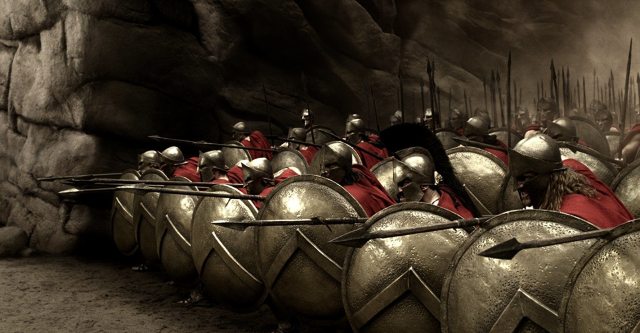Credit: IMDB

The election of Donald Trump has focused our attention on the now familiar split between ‘blue’ and ‘red’ America, that is between the coastal cities and flyover country, the ‘anywheres’ and the ‘somewheres’ or what Henry Olsen calls the ‘ins’ and the ‘outs’.
In a short but brilliant piece for Bloomberg, Tyler Cowen identifies another growing division – one that runs straight through the ‘in’ camp:
“…today’s America has two fundamental and really quite different cultural and intellectual centers: Washington and its environs, and the Bay Area (including Silicon Valley, San Francisco and, if I may cheat a little, Seattle).”
Of course, there’s always been a distinction between east and west coast America. With such a great physical distance between them, it could hardly be otherwise. But Cowen’s point is that the growing power of Silicon Valley (in its broader, not-so-geographically-specific definition) means that what was a distinction is now a rivalry.
This is how he describes the key strengths of Washington DC:
“The D.C. area is the center of legalistic thinking, which is increasingly important with the growth of government and the regulatory state. Lawyers and policy-makers are our engineers for incentives, so to speak, even if they don’t always get it right. Their efforts are backed by an array of economic, legal, political, public opinion and bureaucratic expertise that is without parallel in history…
“D.C. has also become an increasingly important media center, where so many rhetorical battles over the future of the country are started…
“The D.C. area is also the only major U.S. metropolis where the resident intellectual class is more or less evenly divided between left- and right-wing, giving it a nice and potent diversity.”
Silicon Valley has a different set of super-powers:
“The Bay Area is full of engineers of the more literal sort, producing rapidly scalable goods and services, at least once the initial code is cracked. It’s given us operating systems, internet search and browsers, personal computers, smartphones, ride-sharing apps, Facebook, Amazon delivery and much more…
“These new services are built on technical expertise, but they also require the ability to imagine how the future might be quite different, a fundamentally philosophical and ideological skill, even if it is not always recognized as such.”
The differences aren’t just economic, they’re also cultural.
“When it comes to the leaders, D.C. is run by mostly native-born Americans, the Bay Area often by immigrants. And D.C. is old, while the Bay Area is young, again showing two opposing poles of the American experience.”
Nations are often divided between a centre of power and a hinterland – and at times, as at present, tensions can sour into bitterness. But perhaps yet more dangerous is when a nation is riven between rival centres of power.
An interesting, if inexact parallel, is the rivalry of Athens and Sparta in classical Greece.
Athens was the Washington DC of its time – a deeply flawed democracy, from which many groups were excluded; but also a wellspring of culture and philosophical diversity.
Sparta couldn’t have been more different: a totalitarian society, one that was notably egalitarian with respect to the Spartans themselves, but which subjugated and dehumanised the Helot majority by means of total dedication to the arts of war.
To make the parallel with Silicon Valley, read tech for war, screen addition for dehumanisation, and the outsourced workers and unpaid content creators of the digital economy for the Helots.
Like Silicon Valley in our world, Sparta was the disruptor of the ancient Greek world. Though Athens excelled in many things and was therefore the more accomplished culture, Sparta excelled in the one thing that allowed it to disrupt and eventually defeat its rival.
Will Silicon Valley’s technological prowess count for as much as Sparta’s military prowess?
We’re about to find out.










Join the discussion
Join like minded readers that support our journalism by becoming a paid subscriber
To join the discussion in the comments, become a paid subscriber.
Join like minded readers that support our journalism, read unlimited articles and enjoy other subscriber-only benefits.
Subscribe